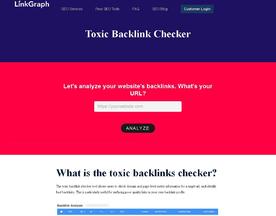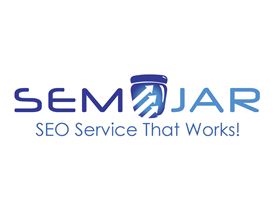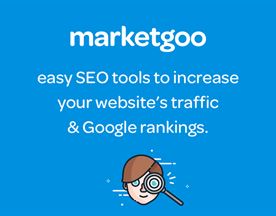Is SEO worth it ? Yes, SEO is worth it. It boosts visibility, drives organic traffic, enhances user experience, and increases ROI for long-term business growth.
SEO or Search Engine Optimization is a term that is widely used in the digital marketing industry. It is the process of optimizing a website to improve its visibility and ranking on search engines such as Google, Bing, and Yahoo. The aim of SEO is to increase the quantity and quality of organic traffic to a website. However, the question that arises is, is SEO is worth it, the investment in terms of time, money, and effort.

While some businesses may argue that SEO is not worth the investment, the truth is that SEO is an essential component of a successful digital marketing strategy. With the increasing competition in the digital space, it is crucial for businesses to have a strong online presence. SEO can help businesses achieve this by improving their ranking on search engines, which in turn can lead to increased visibility, traffic, and ultimately, conversions. In fact, according to a study by BrightEdge, organic search drives 53% of website traffic, making it one of the most important sources of traffic for websites.
Key Takeaways
- SEO is an essential component of a successful digital marketing strategy.
- Organic search drives 53% of website traffic, making it one of the most important sources of traffic for websites.
- Investing in SEO can lead to increased visibility, traffic, and ultimately, conversions.
The Importance of Is SEO Worth It
Search Engine Optimization (SEO) is a critical component of digital marketing that helps businesses increase their online visibility and attract organic traffic. In today’s digital age, SEO has become an essential part of any successful marketing strategy.
Understanding SEO and Its Impact on Business
SEO is the process of optimizing a website to rank higher in search engine results pages (SERPs) for specific keywords. When a website ranks higher in search results, it becomes more visible to potential customers who are searching for products or services related to that website. This increased visibility can lead to more traffic, more leads, and ultimately more sales for businesses.
The Role of SEO in Driving Organic Traffic
One of the most significant benefits of SEO is that it drives organic traffic to a website. Organic traffic refers to the traffic that comes to a website from search engines, without the use of paid advertising. This traffic is highly valuable because it is free and of high quality. By optimizing their website for search engines, businesses can attract more organic traffic and increase their chances of converting visitors into customers.
SEO as a Long-Term Marketing Strategy
SEO is a long-term marketing strategy that requires ongoing effort and investment. Unlike paid advertising, which stops generating traffic once the budget runs out, SEO can continue to drive traffic to a website for months or even years after the initial optimization. This makes SEO a cost-effective and sustainable marketing strategy for businesses.
Overall, SEO is a valuable investment for businesses looking to increase their online visibility, attract organic traffic, and generate leads and sales. By understanding the importance of SEO and implementing effective optimization strategies, businesses can improve their online presence and gain a competitive edge in their industry.
Here is a beginner’s guide to SEO from Moz, a highly respected authority in the SEO industry.
SEO Fundamentals
Keyword Research and Its Significance
Keyword research is the foundation of any successful SEO strategy. It involves identifying the words and phrases that your target audience uses to search for your content, products, or services. By understanding these keywords, you can optimize your website’s content to rank higher in search engine results pages (SERPs) and drive more traffic to your site.
To conduct keyword research effectively, you need to use tools that can help you identify the most relevant and high-traffic keywords for your website. Google’s Keyword Planner is a popular and free tool that can help you get started. However, it’s important to note that keyword research is an ongoing process, and you need to continually monitor and adjust your strategy based on changing search trends and user behavior.
The Relevance of Quality Content Creation
Content is king when it comes to SEO. Google’s algorithm rewards websites that provide high-quality, relevant, and engaging content to their users. This means that you need to create content that is not only optimized for search engines but also provides value to your target audience.
To create quality content, you need to understand your audience’s needs and interests and tailor your content to meet those needs. You should also use relevant keywords in your content and ensure that it is well-organized, easy to read, and visually appealing.
On-Page and Off-Page SEO Explained
On-page SEO refers to the optimization of individual web pages to rank higher in search engine results pages. This includes optimizing your website’s content, meta tags, headers, and images for relevant keywords and ensuring that your website is mobile-friendly and has a fast loading speed.
Off-page SEO, on the other hand, refers to the optimization of external factors that can influence your website’s ranking in search engine results pages. This includes building high-quality backlinks from reputable websites, engaging with your audience on social media, and using local SEO tactics to target users in specific geographic locations.
By combining on-page and off-page SEO strategies, you can improve your website’s visibility in search engine results pages and drive more traffic to your site.
To learn more about SEO fundamentals and is SEO worth it, check out this comprehensive guide from Moz, a leading authority on SEO.
Evaluating SEO Performance
When it comes to evaluating the performance of SEO, there are several key factors to consider. By tracking rankings and traffic, analyzing SEO metrics and ROI calculation, and utilizing SEO tools and analytics platforms, businesses can gain a better understanding of the effectiveness of their SEO efforts.
Tracking Rankings and Traffic
One of the most important aspects of evaluating SEO performance is tracking rankings and traffic. By monitoring search engine rankings for relevant keywords and analyzing website traffic, businesses can gain insight into the effectiveness of their SEO efforts. This information can be used to identify areas for improvement and make adjustments to SEO strategies as needed.
SEO Metrics and ROI Calculation
In addition to tracking rankings and traffic, businesses should also analyze SEO metrics and calculate ROI. By monitoring metrics such as organic search traffic, bounce rate, and conversion rate, businesses can gain a better understanding of the impact of their SEO efforts on website traffic, sales, leads, and potential customers. Calculating ROI can also help businesses determine the overall effectiveness of their SEO strategies and make informed decisions about future investments in SEO.
SEO Tools and Analytics Platforms
To effectively evaluate SEO performance, businesses should also utilize SEO tools and analytics platforms. These tools can provide valuable insights into website traffic, keyword rankings, and other important SEO metrics. Popular tools and platforms include Ahrefs, Google Analytics, and SEMrush. By leveraging these tools and platforms, businesses can gain a competitive edge and improve the effectiveness of their SEO strategies.
Overall, evaluating SEO performance is a critical component of any successful SEO strategy. By tracking rankings and traffic, analyzing SEO metrics and ROI calculation, and utilizing SEO tools and analytics platforms, businesses can gain valuable insights into the effectiveness of their SEO efforts and make informed decisions about future investments in SEO. For more information on evaluating SEO performance, check out this high-authority resource on SEO metrics and ROI calculation.
SEO for Different Business Types

When it comes to SEO, different types of businesses have different needs and requirements. In this section, we’ll explore some of the key considerations for various business types.
Local SEO for Small Businesses
For small businesses with a physical storefront or service area, local SEO is crucial. This involves optimizing your website and online presence to appear in local search results, such as when someone searches for “coffee shops near me” or “plumbers in [your city]”.
Some key strategies for local SEO include claiming and optimizing your Google My Business listing, building local citations (mentions of your business name, address, and phone number on other websites), and targeting location-specific keywords in your website content.
It’s also important to have consistent NAP (name, address, phone number) information across all online platforms, as this helps search engines verify the legitimacy and relevance of your business.
For more information on local SEO and is SEO worth it, check out this guide from Moz.
SEO for E-Commerce and Online Businesses
For businesses that primarily operate online, such as e-commerce stores or SaaS companies, SEO is critical for driving traffic and sales. In addition to traditional SEO tactics like keyword research and on-page optimization, these businesses may also need to focus on technical SEO issues like site speed and mobile-friendliness.
Other important considerations for e-commerce and online businesses include optimizing product pages for search, building backlinks to your site, and creating high-quality content that attracts and engages your target audience.
For more information on is SEO worth it and e-commerce SEO, check out this guide from Shopify.
B2B SEO Strategies and Considerations
Business-to-business (B2B) companies often have unique SEO needs and challenges. For example, they may need to target specific industries or job titles with their keywords, or focus on building relationships with other businesses for link-building purposes.
Some key strategies for B2B SEO include creating thought leadership content that establishes your business as an authority in your industry, optimizing your website for specific buyer personas and pain points, and leveraging social media and other platforms to connect with potential customers.
For more information on B2B SEO and is SEO worth it, check out this guide from Search Engine Land.
SEO Investment and Costs

Understanding SEO Pricing Models
SEO pricing models can vary greatly depending on the agency or service provider. Some may charge a flat fee per month, while others may charge based on the number of keywords or pages optimized. It is important to understand the pricing model before committing to an SEO service.
Additionally, it is important to consider the quality of the service being provided. Cheaper services may not provide the same level of expertise or attention to detail as more expensive ones. It may be worth investing in a higher-priced service if it leads to better results in the long run.
Calculating the Cost-Benefit of SEO Services
Calculating the cost-benefit of SEO services can be a challenging task. It is important to consider the potential return on investment (ROI) versus the upfront cost. While SEO services may seem expensive at first, the long-term benefits can outweigh the costs.
One way to calculate the ROI of SEO services is to consider the potential increase in website traffic and conversions. By improving search engine rankings, a website may see an increase in organic traffic, which can lead to more sales or leads.
In-House SEO vs. Hiring an Agency
When considering SEO services, businesses may choose to hire an in-house SEO specialist or outsource to an agency. While an in-house specialist may provide more control and flexibility, it can also be more expensive and time-consuming to train and manage.
Outsourcing to an agency can provide access to a team of experts with a range of skills and experience. However, it is important to choose a reputable agency with a proven track record of success.
Overall, investing in SEO services can be a valuable investment for businesses looking to improve their online presence and attract more customers. By understanding the costs and benefits of SEO services, businesses can make an informed decision on how to proceed. For more information on SEO pricing models, check out this article.
Advanced SEO Techniques

In order to stay ahead of the competition, it is crucial to implement advanced SEO techniques. These techniques are designed to improve organic search rankings, increase conversion rates, and enhance user experience. Here are some of the most effective advanced SEO techniques that businesses can use to optimize their websites.
The Impact of Mobile Optimization
Mobile optimization is a crucial aspect of advanced SEO techniques. With the majority of internet users accessing websites through their mobile devices, it is essential to ensure that the website is optimized for mobile devices. This includes using responsive design, optimizing images and videos for mobile devices, and ensuring that the website loads quickly on mobile devices. By doing so, businesses can improve their mobile search rankings, increase user engagement, and boost conversion rates.
To learn more about the impact of mobile optimization on SEO, check out this article from Search Engine Land.
Leveraging Artificial Intelligence in SEO
Artificial intelligence (AI) is becoming increasingly important in advanced SEO techniques. By leveraging AI, businesses can gain insights into search engine algorithms, analyze user behavior, and optimize their websites accordingly. This includes using AI-powered tools to conduct keyword research, analyze user intent, and optimize content for search engines.
To learn more about how AI is being used in SEO and is SEO worth it, check out this article from Forbes.
Technical SEO and Site Architecture
Technical SEO and site architecture are critical components of advanced SEO techniques. This includes optimizing website structure, improving page load speed, and ensuring that the website is crawlable by search engine bots. By doing so, businesses can improve their search engine rankings, increase user engagement, and boost conversion rates.
To learn more about technical SEO and site architecture and is SEO worth it, check out this article from Search Engine Journal.
Overall, advanced SEO techniques are essential for businesses looking to improve their search engine rankings, increase user engagement, and boost conversion rates. By implementing these techniques, businesses can stay ahead of the competition and achieve long-term success in the digital marketplace.
SEO in the Marketing Mix

SEO is an essential component of the marketing mix, and it plays a crucial role in the success of any digital marketing strategy. It is a cost-effective way to increase qualified traffic to a website, and it can help businesses to achieve their marketing goals.
Integrating SEO with Other Marketing Channels
SEO can be integrated with other marketing channels, such as social media, email marketing, and paid advertising, to create a cohesive marketing strategy. By integrating SEO with other channels, businesses can increase their visibility and reach a wider audience.
SEO’s Role in the Customer Journey
SEO plays a critical role in the customer journey, from the awareness stage to the decision stage. It can help businesses to attract potential customers, educate them about their products or services, and persuade them to make a purchase. By optimizing their website for search engines, businesses can ensure that their website is visible to potential customers at every stage of the customer journey.
Content Marketing and Link Building Synergy
Content marketing and link building are two critical components of SEO. Content marketing involves creating high-quality content that is relevant and valuable to the target audience, while link building involves acquiring backlinks from other websites. By combining these two strategies, businesses can create a synergy that can help them to achieve their SEO goals.
According to Neil Patel, “content marketing and SEO go together like peanut butter and jelly.” He goes on to explain that content marketing can help businesses to attract backlinks, which can improve their search engine rankings, while SEO can help businesses to optimize their content for search engines, which can increase their visibility and attract more traffic to their website.
In conclusion, SEO is a vital component of the marketing mix, and it can help businesses to achieve their marketing goals. By integrating SEO with other marketing channels, optimizing their website for search engines, and combining content marketing with link building, businesses can create a cohesive marketing strategy that can help them to attract and convert more customers.
Challenges and Considerations in SEO

Adapting to Search Engine Algorithm Updates
One of the biggest challenges in SEO is keeping up with the constant changes in search engine algorithms. Search engines like Google and Bing are continually updating their algorithms to provide the best search results for their users. These updates can have a significant impact on a website’s search engine rankings, making it crucial for SEO professionals to stay up-to-date with the latest changes.
To adapt to algorithm updates, SEO professionals must continually monitor search engine updates, analyze their impact on their clients’ websites, and adjust their strategies accordingly. This can be time-consuming and requires a deep understanding of search engine algorithms.
SEO and the Importance of Brand Trust
Building brand trust is essential for any business, and SEO can help businesses establish trust with their target audience. However, building brand trust through SEO requires a long-term commitment and a focus on providing high-quality content that is both informative and engaging.
SEO professionals must work to create content that is trustworthy and authoritative, as well as optimize their clients’ websites for search engines. This includes ensuring that the website is user-friendly, has a fast loading speed, and is optimized for mobile devices.
Dealing with SEO Market Saturation
Another challenge in SEO is dealing with market saturation. With so many businesses competing for the same keywords and phrases, it can be challenging to stand out in search engine results pages (SERPs).
To overcome this challenge, SEO professionals must focus on creating unique, high-quality content that provides value to their target audience. They must also conduct in-depth keyword research to identify less competitive keywords and phrases that can help their clients rank higher in SERPs.
Overall, SEO can be a powerful tool for businesses looking to improve their online visibility and drive more traffic to their websites. However, it is essential to understand the challenges and considerations involved in SEO to develop an effective strategy that delivers results.
Here is a link to Moz’s blog, which provides regular updates on search engine algorithms and their impact on SEO.
Leveraging SEO Case Studies

SEO is a constantly evolving field, and it can be difficult to determine if the investment and is SEO worth it. One way to evaluate the effectiveness of SEO is by examining case studies. Case studies provide insight into how various industries have used SEO and the results they achieved.
Success Stories from Various Industries
Case studies show that SEO can be effective in driving traffic and increasing revenue. For example, a case study by Moz found that implementing SEO strategies increased organic traffic by 64% and revenue by 135% for an e-commerce website. Another case study by Search Engine Journal showed that a law firm increased its organic traffic by 714% and its overall close rate by 60% after implementing SEO strategies.
Analyzing Failures and Lessons Learned
While success stories are encouraging, it is also important to examine failures and learn from them. One example of a failed SEO strategy is the case of J.C. Penney. In 2011, the company was found to have engaged in “black hat” SEO tactics, which resulted in a penalty from Google and a significant drop in organic rankings. This case study serves as a reminder that unethical or manipulative SEO practices can have serious consequences.
Consultants and content creation are also important factors in SEO success. A case study by Search Engine Land found that working with an SEO consultant and implementing a content creation strategy resulted in a 116% increase in organic search traffic for an online retailer.
In conclusion, case studies provide valuable insights into the effectiveness of SEO strategies. By examining both success stories and failures, businesses can make informed decisions about their SEO investment. To see is SEO worth it?
SEO Tools and Resources

Essential SEO Tools for Marketers
To succeed in SEO, marketers need to have access to the right tools and resources. Some essential SEO tools include:
Google Analytics: This free tool provides valuable insights into website traffic, user behavior, and conversion rates. It helps marketers track the effectiveness of their SEO strategies and identify opportunities for improvement.
Keyword Research Tools: Keyword research is essential for identifying the right keywords to target in your content. Some popular keyword research tools include Google Keyword Planner, SEMrush, and Ahrefs.
Image Optimization Tools: Images are an important part of SEO, and optimizing them can help improve your search rankings. Tools like Kraken.io and TinyPNG can help compress images without sacrificing quality, making them load faster and improving user experience.
Off-Page SEO Tools: Off-page SEO refers to activities that take place outside of your website, such as link building and social media marketing. Tools like BuzzStream and Hootsuite can help with these activities, making it easier to track and manage your campaigns.
Learning SEO: Skills and Training
SEO requires a range of skills and knowledge, including technical expertise, content creation, and marketing. Some resources for learning SEO include:
SEO Courses: Online courses like those offered by Moz and Udemy can provide in-depth training on all aspects of SEO, from keyword research to link building.
SEO Blogs and Forums: Staying up-to-date on the latest SEO trends and best practices is essential for success. Some popular SEO blogs and forums include Moz Blog, Search Engine Journal, and Reddit’s SEO community.
SEO Conferences and Events: Attending SEO conferences and events can provide valuable networking opportunities and insights into the latest industry trends. Some popular events include MozCon, SearchLove, and SMX.
By utilizing these essential SEO tools and resources, marketers can develop the skills and knowledge they need to improve their search results and drive more traffic to their websites. For more information on SEO best practices, and is SEO worth it, check out this guide from Search Engine Land.
Frequently Asked Questions

What are the tangible benefits of SEO for modern businesses?
SEO can help businesses improve their online visibility and attract more organic traffic to their websites. This can lead to increased brand awareness, more leads, and ultimately, more sales. By optimizing their website and content for search engines, businesses can also improve the user experience for their website visitors, which can lead to better engagement and higher conversion rates.
How does SEO impact small business growth and sustainability?
For small businesses, SEO can be a cost-effective way to compete with larger companies in their industry. By focusing on local SEO tactics, small businesses can target their ideal customers in their immediate area and attract more foot traffic to their brick-and-mortar locations. Additionally, investing in SEO can help small businesses establish themselves as industry leaders and build trust with their target audience.
What are the cost versus benefits considerations when investing in SEO services?
While investing in SEO services can be costly, the long-term benefits often outweigh the initial investment. By improving their online visibility and attracting more organic traffic, businesses can generate more leads and sales over time. Additionally, SEO can be a more cost-effective marketing strategy compared to traditional advertising methods.
Can SEO strategies lead to long-term success for companies?
Yes, SEO strategies can lead to long-term success for companies. By consistently optimizing their website and content for search engines, businesses can maintain their online visibility and attract more organic traffic over time. Additionally, SEO can help businesses establish themselves as industry leaders and build trust with their target audience, which can lead to long-term customer loyalty.
How has the relevance of SEO evolved for businesses in recent years?
In recent years, the relevance of SEO has evolved as search engines have become more sophisticated in their algorithms. Today, SEO is more focused on providing high-quality, relevant content to users and improving the user experience on websites. Additionally, local SEO tactics have become increasingly important for businesses looking to attract customers in their immediate area.
What should businesses prioritize when considering SEO as part of their marketing efforts?
When considering SEO as part of their marketing efforts, businesses should prioritize creating high-quality, relevant content that provides value to their target audience. Additionally, businesses should focus on optimizing their website for mobile devices, as more and more users are accessing the internet on their smartphones. Finally, businesses should consider investing in local SEO tactics to target their ideal customers in their immediate area.
For more information on the benefits of SEO for modern businesses and is SEO worth it, check out this article.












